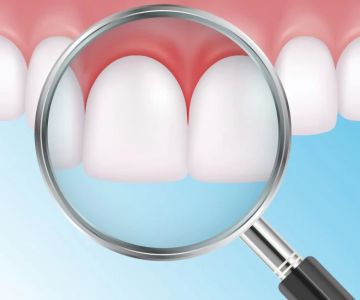Understanding the Link Between Oral Health and Disease
The mouth is often called the gateway to the body, and for good reason. It is not only where digestion begins but also a potential entry point for harmful bacteria and viruses. Poor oral hygiene and untreated dental problems can lead to a variety of diseases that affect not only your mouth but also your overall health. Understanding what diseases can you get from oral health issues is crucial for taking preventive measures and seeking timely care.
Oral diseases range from common problems like cavities and gum inflammation to more serious conditions that impact systemic health. The relationship between oral infections and chronic diseases such as diabetes and heart disease has been the subject of extensive research. This connection underscores the importance of maintaining oral health as a foundation for overall well-being.
Common Oral Diseases and Their Impact
1. Dental Caries (Tooth Decay) and Its Consequences
Dental caries, commonly known as cavities, are among the most widespread oral diseases worldwide. They occur when bacteria in dental plaque produce acids that erode tooth enamel. If left untreated, cavities can progress to painful tooth infections or abscesses.
In the U.S., the Centers for Disease Control and Prevention reports that nearly 92% of adults have experienced dental caries in their permanent teeth. Beyond pain and tooth loss, severe decay can lead to systemic infections if bacteria enter the bloodstream.
2. Gingivitis and Periodontal Disease
Gingivitis is the earliest stage of gum disease, characterized by red, swollen gums that may bleed during brushing. If neglected, it can advance to periodontitis, a serious infection damaging the soft tissue and bone supporting teeth. Periodontal disease is a leading cause of tooth loss in adults.
Research indicates a strong association between periodontal disease and cardiovascular conditions. The inflammation from gum disease may contribute to plaque buildup in arteries, increasing heart attack and stroke risk. This highlights that oral health is deeply interconnected with heart health.
3. Oral Thrush and Fungal Infections
Oral thrush is a fungal infection caused by the overgrowth of Candida yeast. It appears as white patches on the tongue, inner cheeks, and sometimes the throat. Thrush is more common in infants, the elderly, and people with weakened immune systems.
If untreated, oral thrush can cause discomfort, difficulty swallowing, and may spread to other parts of the body. Good oral hygiene, antifungal medications, and managing underlying conditions help prevent and treat this infection.
Systemic Diseases Linked to Oral Health Problems
4. Cardiovascular Disease and Oral Infections
The connection between oral bacteria and heart disease has gained increasing attention. Studies suggest that bacteria from inflamed gums can enter the bloodstream, contributing to the formation of arterial plaques. This can lead to atherosclerosis, increasing the risk of heart attacks and strokes.
Patients with chronic periodontal disease often have higher levels of systemic inflammation markers, such as C-reactive protein, which are linked to cardiovascular risk. Maintaining healthy gums may reduce these risks, emphasizing the importance of oral care beyond just teeth.
5. Diabetes and Oral Health Interactions
Diabetes and oral health have a bidirectional relationship. Poor blood sugar control can worsen gum disease, and conversely, severe periodontal disease can make diabetes harder to manage. High glucose levels in saliva provide a favorable environment for bacterial growth, increasing infection risk.
Effective management of both conditions includes regular dental visits, blood sugar control, and rigorous oral hygiene practices. Many diabetic patients have reported significant improvements in gum health after controlling their diabetes.
6. Respiratory Infections Originating from Oral Bacteria
Oral bacteria can be inhaled into the lungs, causing respiratory infections such as pneumonia, especially in elderly or immunocompromised individuals. Poor oral hygiene increases the risk by allowing harmful bacteria to proliferate.
Studies in nursing home populations have shown that improved oral care reduces respiratory infection rates. This reinforces the importance of oral hygiene for vulnerable groups.
Preventive Strategies and Effective Oral Care Practices
7. Brushing and Flossing Correctly to Minimize Disease Risk
Daily oral hygiene is the frontline defense against many oral diseases. Brushing twice daily with fluoride toothpaste and flossing removes plaque that harbors harmful bacteria. Proper technique and consistency are key; for instance, brushing for two minutes and reaching all tooth surfaces reduce infection risk.
Using antimicrobial mouth rinses can further decrease bacterial load and inflammation. Patients who adopt thorough hygiene routines often experience fewer cavities and healthier gums, which lowers the chance of related systemic diseases.
8. Regular Dental Checkups for Early Detection and Treatment
Professional dental cleanings and exams detect early signs of oral disease before they become severe. Dentists can remove tartar buildup, treat infections, and provide personalized advice. Many patients share that early intervention saved them from extensive treatments later.
Routine visits also allow for oral cancer screenings, which are critical given that early-stage oral cancers are often symptomless. Early detection dramatically improves outcomes.
Stories That Highlight the Importance of Oral Health Awareness
Take John, a 55-year-old man from Ohio, who ignored his bleeding gums for years. After suffering a heart attack, doctors linked his cardiovascular disease partially to advanced periodontal infection. John’s experience motivated him to overhaul his oral hygiene and advocate for preventive dental care among his peers.
Similarly, Maria, a diabetic woman from California, noticed her gum disease worsening with poor blood sugar control. After partnering with her healthcare providers and dentist, she managed both conditions successfully, improving her quality of life and oral health.
Empowering Your Health Through Better Oral Care
Recognizing what diseases can you get from oral problems is essential for taking proactive steps toward healthier living. By integrating good oral hygiene practices, attending regular dental appointments, and making lifestyle changes, you can significantly reduce your risk of oral and systemic diseases.
For personalized advice and treatment plans, visit Dentistry Toothtruth, where experienced dental professionals are ready to support your journey to a healthier smile and body.







 Westgate Dental Arts3.0 (2 review)
Westgate Dental Arts3.0 (2 review) Coventry Family Dental4.0 (247 review)
Coventry Family Dental4.0 (247 review) Familia Dental3.0 (1028 review)
Familia Dental3.0 (1028 review) Dr. Daniel S. Fife, DDS4.0 (31 review)
Dr. Daniel S. Fife, DDS4.0 (31 review) Dentistry At Suburban Square: Michael I. Wollock, DMD4.0 (1228 review)
Dentistry At Suburban Square: Michael I. Wollock, DMD4.0 (1228 review) Comfort Care Dental4.0 (1156 review)
Comfort Care Dental4.0 (1156 review) The Importance of Oral Health Education During Pregnancy for a Healthy Pregnancy
The Importance of Oral Health Education During Pregnancy for a Healthy Pregnancy Why Skipping Dental Checkups Can Lead to Bigger Oral Health Problems
Why Skipping Dental Checkups Can Lead to Bigger Oral Health Problems Best Tips for Brushing Your Teeth Properly for Healthy Gums: Essential Techniques for Oral Health
Best Tips for Brushing Your Teeth Properly for Healthy Gums: Essential Techniques for Oral Health Advantages of Porcelain Dental Restorations
Advantages of Porcelain Dental Restorations How Can Diabetes Cause Tooth and Gum Problems? Preventing and Managing Oral Health Issues
How Can Diabetes Cause Tooth and Gum Problems? Preventing and Managing Oral Health Issues Healthy Habits for Promoting Good Oral Health and Hygiene: Tips for a Healthy Smile
Healthy Habits for Promoting Good Oral Health and Hygiene: Tips for a Healthy Smile